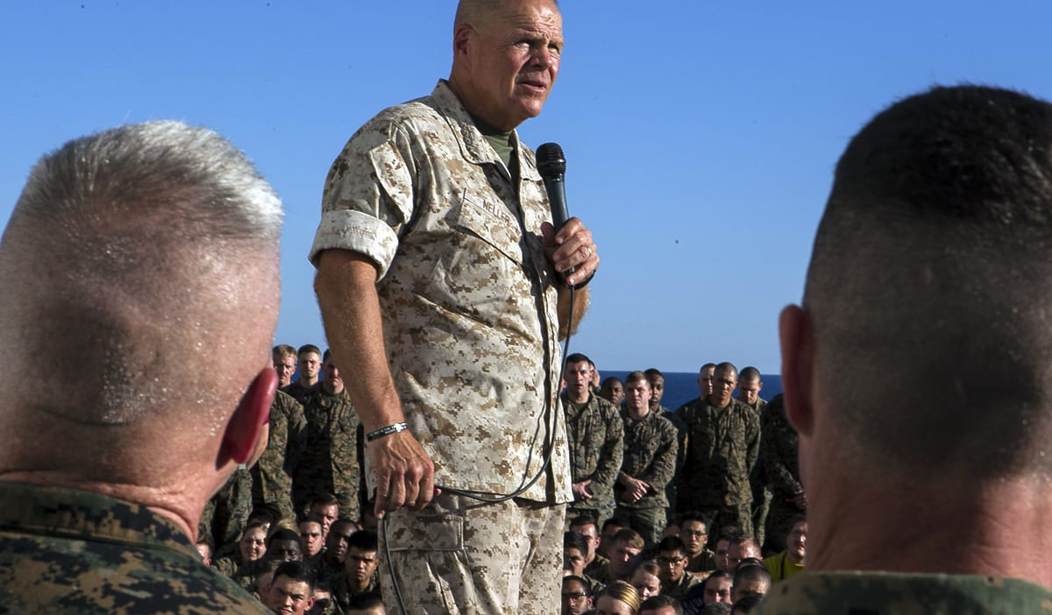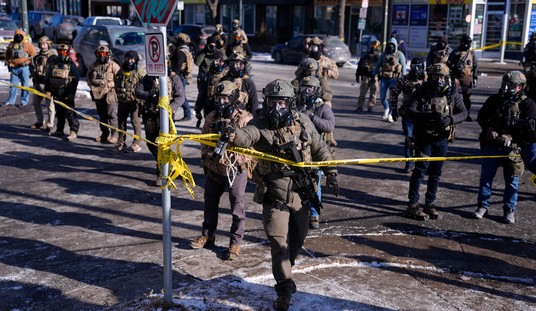ARLINGTON, Va. — Marine Corps Commandant Gen. Robert Neller said an uptick in sexual assault reports could indicate that Marines are more comfortable reporting attacks to the chain of command, but stressed the Corps won’t be satisfied until the number drops.
The Defense Department’s Sexual Assault Prevention and Response Office reported Monday that sexual assault reports across the services jumped 10 percent last year, with the Marines experiencing the biggest increase at 14.7 percent.
The 6,769 total reports included 4,193 female service members and 1,084 male service members alleging unwanted sexual contact, with the civilian workforce making up the balance of reports. The report stated that= “evidence supported taking action on 54 percent of sexual assault allegations with the court-martial process.”
At a Pentagon briefing today alongside Navy Secretary Richard Spencer and Chief of Naval Operations Adm. John Richardson, Neller was asked about the 998 Marine Corps cases and whether more changes are necessary to address the problem.
After grappling with the fallout of the scandal in which hundreds of current and former Marines were posting explicit intimate or surreptitious photos of their female colleagues online, a task force was formed by the Corps “to make sure that everybody understood what the rules of the road were,” and that task force is still in effect, Neller said, noting that “we don’t have the ability, nor the legal authority, to monitor social media.”
“When I was briefed the other day by the OSD Task Force on Sexual Assault, obviously, we were aware that we’d had a slight increase over the previous year. And you have to decide, what are the metrics you’re going to measure in improvement? So they were actually saying this is good; that more people are reporting. Because to me, the metric is, do Marines have confidence in their chain of command? And do they believe that the potential of a retribution goes down? So that’s what we’re trying to measure,” he said.
“So are we where we want to be? No. If that number continues to go up, then I have to decide, we have to decide if that’s because we are — we still can’t improve our behavior and our discipline, or it’s because people are reporting. Because by all accounts, everyone believes this is a well-underreported event.”
The commandant added that over the past year leaders have been “trying to change a culture that didn’t start a year ago, and social media is something that’s across the country.”
“I’m not responsible for the rest of the country, but I think we should all be concerned with some of the negative things that happen on social media,” Neller said. “So we continue to monitor it. We still continue to pay attention. We continue to hold people accountable, no matter what their rank or status is. And that’s the bottom line. We’re all accountable and if we’re aware of an allegation, we’re going to investigate it. And if it’s substantiated, the individuals involved will be held accountable.”
Spencer added that the services “do hold ourselves in a higher level than the American public, because we are the military that represents the country going forward.”
“But having seen the resources and the products that we have in place to battle this cancerous issue, I will entertain sharing that with any college, university or company that wants to see what we’re doing, because I believe we have one of the best products out there,” the secretary said.
Asked if any Marines had been disciplined under social media policy released last year against cyberbullying, Neller didn’t immediately have numbers yet stressed that it’s not about “hanging scalps” but “respect.”
“It’s about recognition of a Marine is a Marine. You’re evaluated based on your performance as a Marine,” he said. “…We have to teach people that there’s a — we have a different standard for your behavior and your conduct. And if they don’t understand it, then they’re going to have to be held accountable and if necessary, they’re going to leave.”
Richardson added that there’s “a cultural change that we’re trying to create, where if you’re going to depend on your teammate, your shipmate for your life, that’s the thing that should really drive behavior, mutual respect.”
“We’ve really aimed our signature behavior program at the small-unit level, small-unit leaders,” the admiral said. “That’s where we think there’s going to be potential for a lot of progress, and so that’s — just completely support the commandant’s approach there.”









Join the conversation as a VIP Member